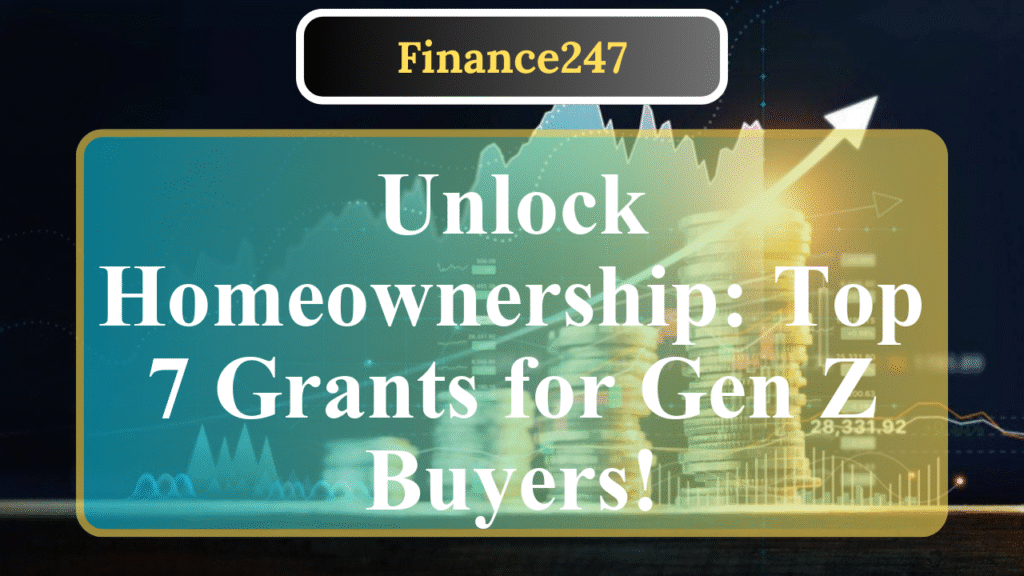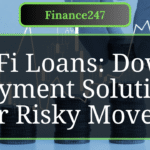“Gen Z faces unique challenges in today’s housing market, but first-time homebuyer grants can ease the financial burden. This article details seven accessible grants, including the National Homebuyers Fund, Bank of America’s Down Payment Grant, and state-specific programs, offering up to $100,000 in aid. Learn eligibility, application steps, and how these grants empower young buyers to achieve homeownership.”
Grants to Help Gen Z Achieve Homeownership
Navigating the housing market as a Gen Z first-time homebuyer can feel daunting, with rising home prices and economic pressures. Fortunately, several grants across the U.S. are designed to make homeownership more attainable, offering financial assistance for down payments and closing costs. Below are seven first-time homebuyer grants that Gen Z can explore, tailored to support young buyers with limited savings or lower incomes.
1. National Homebuyers Fund (NHF)
The National Homebuyers Fund offers up to 5% of the home’s purchase price as a grant or forgivable loan, usable for down payments or closing costs. Available nationwide, it supports first-time buyers (those who haven’t owned a home in the last three years) and can be paired with FHA, VA, USDA, or conventional loans. Income limits apply, often higher than state programs, and a homebuyer education course is required. Contact a participating lender via the NHF website or call (866) 643-4968 to apply.
2. Bank of America Down Payment Grant
Bank of America’s Down Payment Grant provides up to $10,000 or 3% of the home’s purchase price, whichever is lower, for first-time buyers in select markets like Atlanta, Dallas, and Philadelphia. The grant, which may be taxable, requires a Bank of America mortgage and a homebuyer education course. Income and loan-to-value ratio limits apply. Check eligibility through Bank of America’s Down Payment Center.
3. Chase Homebuyer Grant
Chase offers up to $7,500 for first-time buyers in 15 metro areas, including Chicago, Los Angeles, and New York. Funds can cover down payments, closing costs, or interest rate reductions via discount points. Eligible loans include Chase’s DreaMaker, FHA, VA, or conventional mortgages. A homebuyer education course is mandatory, and income restrictions may apply. Contact a Chase lending specialist to verify eligibility.
4. Wells Fargo Homebuyer Access Grant
Wells Fargo provides up to $10,000 for down payments in eight metro areas, such as Atlanta and New York, for buyers earning up to 120% of the area median income (AMI). Additionally, the Dream. Plan. Home. credit offers up to $5,000 for closing costs for those earning 80% or less of AMI. A Wells Fargo mortgage and homebuyer education course are required. Check eligibility on Wells Fargo’s website.
5. HUD’s Good Neighbor Next Door Program
The Good Neighbor Next Door program, managed by the U.S. Department of Housing and Urban Development, offers a 50% discount on HUD-owned homes in revitalization areas for teachers, firefighters, law enforcement officers, and EMTs. Eligible Gen Z buyers must not have owned a home in the past 12 months and commit to living in the home for three years. Explore HUD’s directory for local options.
6. HomeFirst Down Payment Assistance Program (New York City)
In New York City, the HomeFirst Down Payment Assistance Program provides up to $100,000 as a forgivable loan for first-time buyers purchasing a 1-4 family home, condo, or co-op in one of the five boroughs. Buyers must contribute 3% of the purchase price from their own funds and complete a HUD-approved homebuyer education course. Contact an HPD-approved counseling agency to apply.
7. First-Generation Homebuyers Community Down Payment Assistance Fund (Minnesota)
Minnesota’s First-Generation Homebuyers program offers up to $32,000 as a zero-interest, forgivable loan for first-generation buyers (those whose parents never owned a home or lost it to foreclosure). Available statewide, it requires a 640 minimum credit score, a home price under $224,500, and a homebuyer education course. Funds are forgiven over five years if the home remains the primary residence. Visit firstgendpa.org for details.
Application Tips for Gen Z Buyers
Most grants require a HUD-approved homebuyer education course, which can be completed online or in-person for free or a small fee (around $100). Income and home price limits vary by program and location, so check specific guidelines. Start by contacting your state’s housing finance authority, a local lender, or a real estate agent to identify eligible programs. Maintain organized financial records and apply early, as some grants are first-come, first-served.
Disclaimer: This article provides general information based on publicly available sources and is not financial advice. Eligibility and availability of grants vary by location, income, and program. Always verify details with lenders, housing agencies, or HUD-approved counselors before applying. Consult a financial advisor for personalized guidance.


